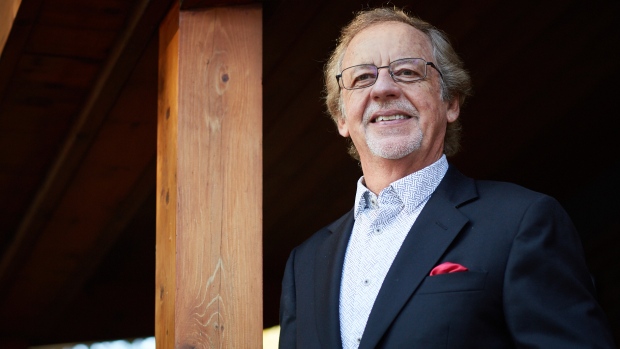Nov 5, 2019
Insurance is for older people, too
Insurance is for older people, too
Most people think life insurance is for young families that want to protect their income in case something goes awry. But there are plenty of reasons why older Canadians may want to continue to pay premiums.
If there’s one financial product that Gary Ford can’t live without it’s life insurance. The “semi-retired” president of Life is Sales, a Toronto-based firm that puts on sales-related seminars, has had insurance for decades, taking out his first policy soon after he got married. His two children are now grown and have moved out, but he keeps paying for coverage every month.
“I’m still paying my insurance premiums and I’m happy to do so,” he says.
At this point in his life, Ford isn’t using life insurance to cover any loss of income, as both he and his wife are drawing a pension. He’s paying premiums because he wants to pass more money down to his children after he’s gone. In some ways, it forces him to save, rather than spend those dollars.
“If I had all that money, it would be gone,” Ford says with a laugh. “We naturally have a tendency to spend what we have. It’s a great way for me to do forced savings with a very positive rate of return.”
RELATED LINKS:
Learn more about Canada Life term insurance
Coverage when it counts: Critical illness insurance from Canada Life
As Ford shows, life insurance isn’t just for young families or income protection. While most people do purchase life insurance in their 20s and 30s, when they have a young family to protect, a policy can still be useful even after the children have moved out and covering lost income isn’t a priority anymore.
Older Canadians, in their 50s, 60s and beyond, use life insurance, which comes as a tax-free lump sum payment, for a host of reasons. Maybe they want to top up an inheritance or leave money to their favourite charity or pay a big tax bill they know may be coming. By covering all these things with life insurance, you can use the money you’ve saved on your retirement.
“When people get older, they start to think about what they’re going to leave their loved ones and charities, as well as how they’re going to spend their money while they’re alive,” says Rona Birenbaum, a certified financial planner in Toronto. “What they begin to focus on is how to maximize the size of their estate without compromising their lifestyle in retirement. Life insurance can be a tool to tax efficiently fund estate planning goals.”

Insurance options for older Canadians
According to Birenbaum, most older Canadians prefer permanent insurance, such as whole or universal life, to term insurance. The latter, which usually lasts for 10 or 20 years until it expires, is popular among younger Canadians who can buy it and then not use it, but it can be expensive for older people to own.
Permanent insurance, on the other hand, lasts as long as the premiums are paid up and offers an investment component that can increase the amount payable on death. With every policy, the “death benefit” is tax free, but with whole and universal life options, the investment component is tax advantaged. If you don’t use it then that money can also pass down to the next generation tax free. If you do use those funds by withdrawing from your policy before you pass away, then you’ll have to pay tax based on your marginal tax rate.
Later-in-life policies aren’t inexpensive, but the benefits can outweigh the costs, depending on your financial goals. For instance, people often use life insurance to even out assets among beneficiaries, which can prevent family strife later on. If one person gets a cottage, the other will need more money to balance the inheritance, says Birenbaum.
Tax-advantaged giving
Among the many reasons people buy life insurance when they’re older, charitable giving is near the top, at least among wealthy Canadians, says Birenbaum. While you can leave money to an organization in your will, those funds may get taxed as they leave a registered account. Life insurance, on the other hand, lets you donate a lump sum of money tax free. Your estate will then get a donation receipt, which it can use to lower your final tax bill.
You can also buy a policy in the charity’s name – the organization will be the owner of the policy and the beneficiary – which then makes your monthly premiums tax deductible every year. You’ll also receive a tax deduction on the payout. “There are some very tax efficient ways to give, especially if you’re in a high tax bracket in retirement,” explains Birenbaum.
Many people also use life insurance for estate planning purposes, says Simon Tanner, a financial advisor in Vancouver. He has seen an uptick in the number of older clients who want insurance because of the tax and estate planning benefits.
“With baby boomers aging and looking more at wealth transfer and tax planning, we’re having more discussions and doing more work with insurance as an estate planning tool,” he notes.
Those in high tax brackets often use whole and universal life insurance as an investment vehicle where they defer their capital gains from tax. The benefits, says Tanner, can be “significant.”
If people can’t buy life insurance for themselves, either it’s too expensive or they’re uninsurable, they can still use insurance as an estate planning tool through so-called “cascading insurance.” This strategy involves placing insurance on a child or grandchild and funding the policy with money that would otherwise be invested in a taxable investment strategy.
“When structured properly, it enables the parent or grandparent to shift ownership of a policy to a child or grandchild,” Tanner says. “The idea is to turn the money you have accumulated and grown in an insurance policy into a legacy for the next generation and the generation after by utilizing the tax benefits of life insurance.”
More than just tax
However, as useful as life insurance can be for tax planning purposes, there needs to be more of a reason to purchase insurance than just tax mitigation, adds Tanner.
“Tax deferral, investment planning and other benefits are secondary,” he says. “There should be a want or a need for insurance protection, and a desire to pass something on to a charity, the next generation, to maximize the estate, whatever the case is.”
Despite having to pay premiums on his whole life policy every month, Ford is happy knowing that no matter what happens, his children will get something after he’s gone. He’s making about twice what he could earn in a guaranteed investment certificate, he says. And the longer he holds the policy, the more he makes, thanks to compounding interest.
While his insurance won’t be the only thing his children receive – his home is the bulk of his estate, he explains – the additional payments will no doubt help.
“I have two grandchildren so far, and my estate will include them as well,” he says. “The insurance will give them all a little something extra.”
The opinions presented are not necessarily those of The Canada Life Assurance Company and are provided for informational purposes only, your circumstances may be different.
To learn more about this product and if it’s right for you, contact a licensed insurance advisor.
